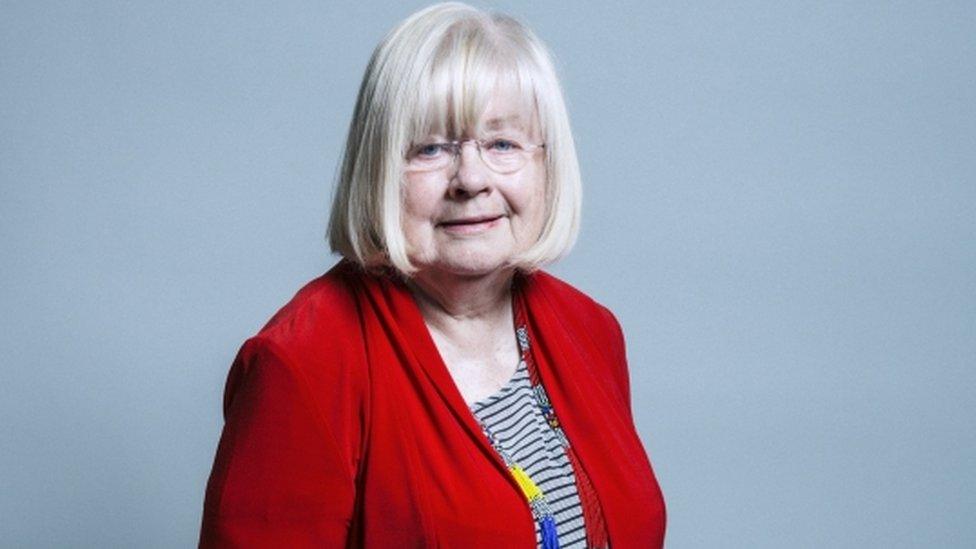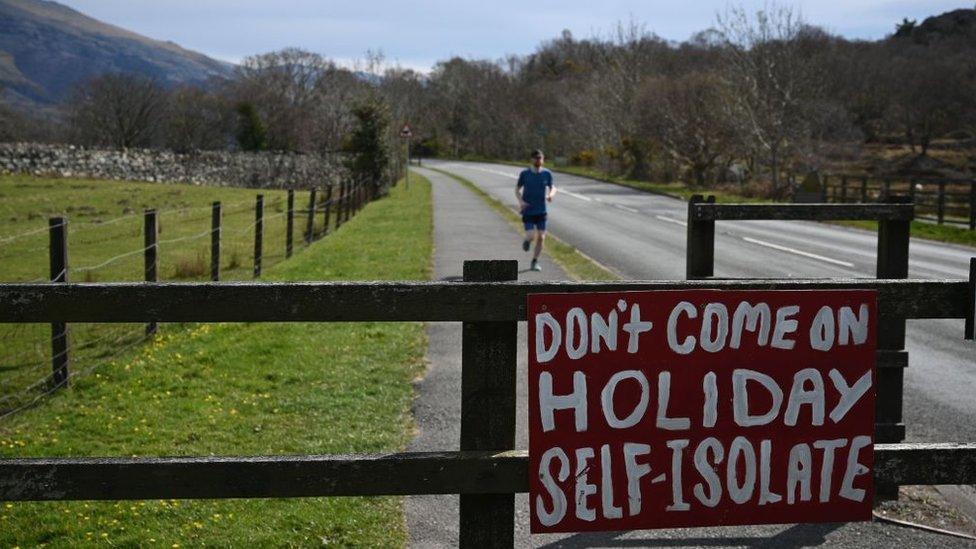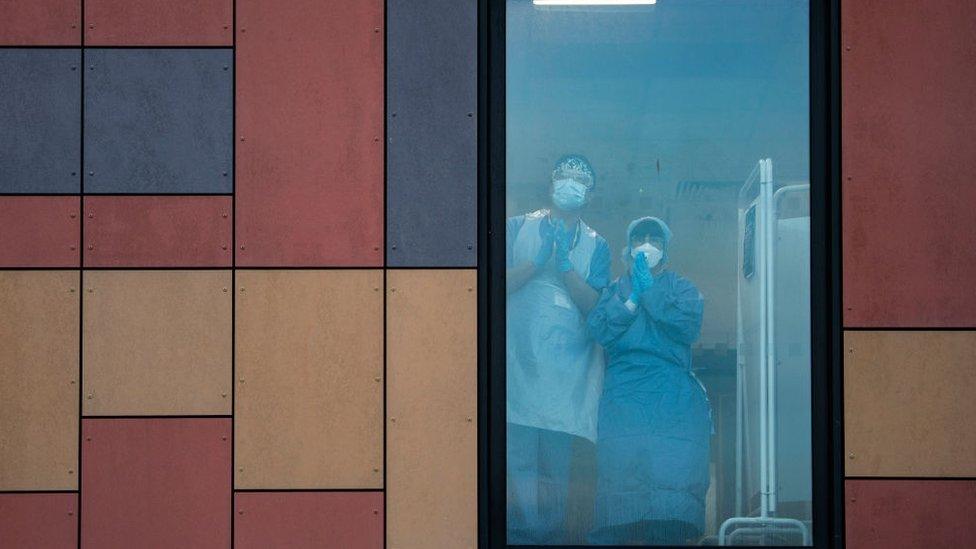Coronavirus: Don't ban over-70s from lockdown easing, says ex-MP
- Published

Ann Clwyd: "I think you've got to leave a lot to people's common sense"
An ex-Labour MP has urged Welsh ministers not to impose a "blanket ban" on the over-70s being involved in the easing of the coronavirus lockdown.
Ann Clwyd was MP for Cynon Valley for 35 years, before retiring in December.
She told BBC Wales self-isolation was "difficult and lonely" and any easing of restrictions on movement should not exclude the over-70 age group.
People over 70 have been advised to be "particularly stringent" in following social-distancing measures.
They are classed as a "vulnerable group" regardless of their medical condition.
Ms Clwyd said that at the beginning of the lockdown she and friends in the same age group felt resignation and a "determination to try and beat the virus, but I think now people are getting depressed because they can't see an end to it".
"They don't know when they might be able to do normal things again," she said
She called on the Welsh Government to provide more nuanced advice for older people.
"You can't have a blanket ban on over-70s," she said.
"It depends, where they've got other health conditions… I had pneumonia last year, I was in intensive care and I know I'm one of the at-risk people.
"But there are other people who haven't had respiratory problems or heart problems and are perfectly healthy.
"I know it's difficult to distinguish and I think you've got to leave a lot to people's common sense.
"People will be careful, but to put a ban on them doing this or that I think would be a mistake."

Wales and the rest of the UK has been in lockdown since late March
The Older People's Commissioner for Wales, Helena Herklots, said many people who contact her feel the same way.
"When I'm talking to older people, there's a very strong feeling that if you're over 70 you've been lumped together in one group," she said.
"There's a huge diversity amongst the over-70s. Many contribute a huge amount to our economy, from volunteering to child care."
She said older people should be involved in the easing of restrictions along with everyone else.
"I think there shouldn't be any justification for a blanket age ban. We know that age is a risk factor, but so are other issues, there's a link with obesity for example, so the communication needs to be really clear about what the risk factors are.
"Just because there's a different risk factor doesn't mean that you should necessarily be staying in lockdown for longer.
"It means we need the right measures in place to support people.
"And it's really important as we go into what hopefully is a recovery phase that that isn't based on age discrimination, on blanket age bans."
Mental health concerns
Ms Herklots said she was concerned about the impact self-isolation was having on older people's mental health.
As ministers look at the recovery phase, she urged them to take into account a range of factors including older people's mental well-being.
"Bring all that different evidence together and weigh up, not just the risks of coming out of lockdown but the risks of staying in lockdown and staying in isolation," she said.
A Welsh Government spokeswoman said: "Over-70s are not included in the highly vulnerable group who are being shielded and asked to follow much more stringent isolation rules.
"The advice on social distancing is the same for everyone. Older people are at increased risk of severe illness from coronavirus and we advise them to be particularly careful in following the rules."
Speaking on Monday the First Minister, Mark Drakeford, accepted that "70 is a blunt instrument", but he said the virus does target older people and those with underlying health conditions and it was right to advise them to take additional steps to stay safe.
"The reason we have given that advice to people in that age bracket, is not because we wanted arbitrarily to make their lives more difficult but because we know that that population is at greater risk, and it makes sense for people in that age bracket therefore to take greater precautions."
- Published5 May 2020

- Published5 May 2020

- Published5 May 2020

- Published29 September 2019
